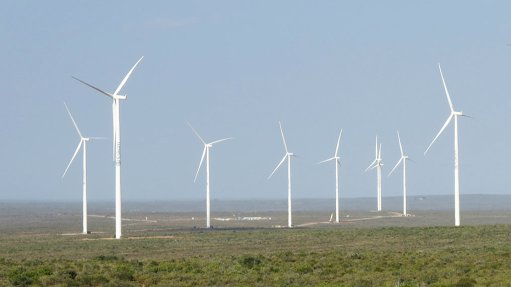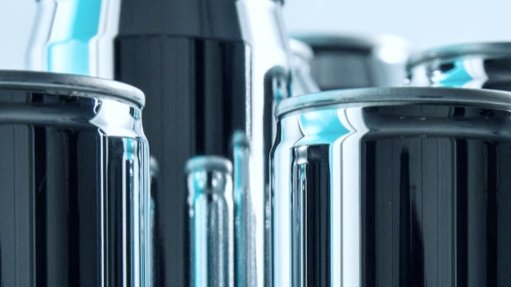Message in a bottle
There was a time, not so long ago, when people would send messages in bottles, even when in great distress. This is now frowned upon, since bottles constitute waste or litter that can harm the environment and marine life. Environmentalists now favour biodegradable drift cards and wooden blocks.
Bottled messages are said to date back to around 310 BC. The origin of this practice could well be classified as ‘scientific littering’, since Greek philosopher Theophrastus used bottled messages in his water current studies.
As I write, the newspapers are awash with reports about research investigating a message in a bottle dating back to April 13, 1912, which appears to have been written by a 12-year-old French schoolgirl who was travelling to New York City with her mother to visit her father and siblings. Their journey started in Southampton, England, on April 10, 1912, and ended four days later – when the ship, which was on its maiden voyage, hit an iceberg. This ship, of course, was the RMS Titanic. The bottle washed up on a beach in New Brunswick, Canada, in 2017. I am at a loss as to why researchers have taken four years to start their investigations.
All this reminds me of Message in a Bottle, a song by English rock band The Police: “I’ll send an S.O.S to the world; I hope that someone gets my; Message in a bottle, yeah . . .”
Imagine yourself sitting on the deck of RMS South Africa and writing your S.O.S. message. What would you cite in the note as the reasons for South Africa’s economic predicament?
In the column of November 15, 2019, under the headline “Hitting SA’s economic challenges head-on”, I wrote: “Had the Titanic’s first officer, William Murdoch, decided not to dodge the iceberg and hit it head-on instead, the Titanic would in all likelihood have survived, even though it would have incurred serious damage. It would not have sunk, it would have suffered substantial damage, it might well have limped into port, but it would be repairable and would have remained in service.” I added: “This made me think of the Medium-Term Budget Policy Statement 2019, delivered by Finance Minister Tito Mboweni on October 30, and question why the South African government is not hitting its economic iceberg – economic challenges – head-on. Evidently, government seems to be trying to dodge its economic challenges rather than hit them head-on. If you want to be technical, there are two economic challenges, which the Finance Minister identified as low growth and State-owned electricity utility Eskom, which he described as South Africa’s biggest economic risk.”
Speaking of electricity, according to Insider’s ‘Titanic Secrets and Little-Known Facts’: “The Titanic’s lights only went out when she finally went under, due to the tireless efforts of the ship’s engineers, who stayed behind to keep the electricity and pumps running while the ship sank.”
The frustrating part of South Africa’s self- inflicted economic tragedy is twofold: it could have been prevented, and those responsible will possibly never be held accountable for their actions. Would it be too much to ask for there to be an Economic Truth and Reconciliation Commission?
If you are still thinking about your message, according to www.wikihow.com, writing one is a four-stage process. Firstly, write your message as story or a poem. Roses are red, violets are blue springs to mind for the less creative. Secondly, add your contact information. Thirdly, secure the message with a string after having rolled it up, pop it in the bottle, and pop on the cork. Finally, add a warning on the outside of the bottle using a permanent marker: “Do not throw this bottle away – message inside!”
My simple, yet desperate, message about the state of the South African economy would rather be tapped on the bottle: three dots, three dashes, and three dots – S.O.S.
Article Enquiry
Email Article
Save Article
Feedback
To advertise email advertising@creamermedia.co.za or click here
Press Office
Announcements
What's On
Subscribe to improve your user experience...
Option 1 (equivalent of R125 a month):
Receive a weekly copy of Creamer Media's Engineering News & Mining Weekly magazine
(print copy for those in South Africa and e-magazine for those outside of South Africa)
Receive daily email newsletters
Access to full search results
Access archive of magazine back copies
Access to Projects in Progress
Access to ONE Research Report of your choice in PDF format
Option 2 (equivalent of R375 a month):
All benefits from Option 1
PLUS
Access to Creamer Media's Research Channel Africa for ALL Research Reports, in PDF format, on various industrial and mining sectors
including Electricity; Water; Energy Transition; Hydrogen; Roads, Rail and Ports; Coal; Gold; Platinum; Battery Metals; etc.
Already a subscriber?
Forgotten your password?
Receive weekly copy of Creamer Media's Engineering News & Mining Weekly magazine (print copy for those in South Africa and e-magazine for those outside of South Africa)
➕
Recieve daily email newsletters
➕
Access to full search results
➕
Access archive of magazine back copies
➕
Access to Projects in Progress
➕
Access to ONE Research Report of your choice in PDF format
RESEARCH CHANNEL AFRICA
R4500 (equivalent of R375 a month)
SUBSCRIBEAll benefits from Option 1
➕
Access to Creamer Media's Research Channel Africa for ALL Research Reports on various industrial and mining sectors, in PDF format, including on:
Electricity
➕
Water
➕
Energy Transition
➕
Hydrogen
➕
Roads, Rail and Ports
➕
Coal
➕
Gold
➕
Platinum
➕
Battery Metals
➕
etc.
Receive all benefits from Option 1 or Option 2 delivered to numerous people at your company
➕
Multiple User names and Passwords for simultaneous log-ins
➕
Intranet integration access to all in your organisation

















